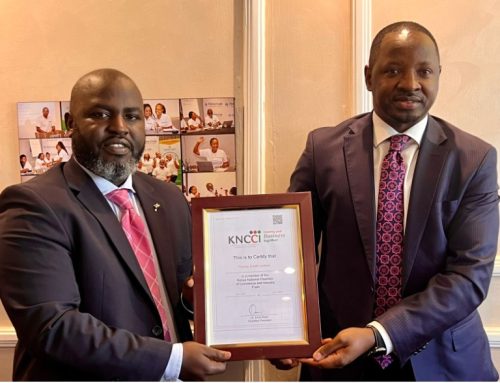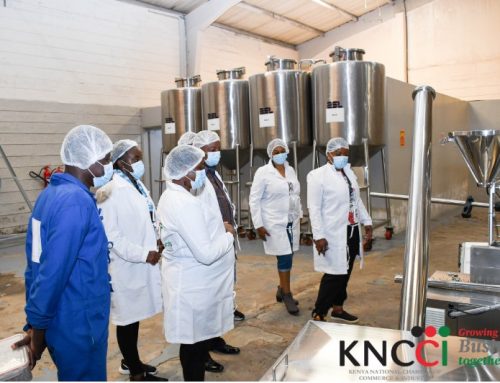The Kenya National Chamber of Commerce and Industry has started talks to revive a framework for strengthening bilateral trade and investment cooperation with Egypt, largely in financial technology and processing of farm produce.
The chamber’s president Richard Ngatia says stronger trade cooperation and investment relationship between business communities in Kenya and Egypt will enhance their standing as respective gateways to East and North Africa.
KNCCI on Wednesday signed a memorandum of understanding (MoU) with Federation of Egyptian Chambers of Commerce and the Cairo Chamber of Commerce aimed at promoting investments in targeted sectors.
These include opportunities in financial technology such as M-Pesa, agro-processing of farm produce such as coffee, fruits, fish and meat as construction of power generation plants, according to the KNCCI.
“A Memorandum of Understanding was signed in 2014 for six years which we need to renew the agreement and continue promoting economic growth and development between our countries,” said Mr Ngatia said.
“We need to revive the Joint Business Council and submit inputs in preparation to the Joint Technical Committee in 8th and 9th September 2021 in Nairobi.”
The MoU signing in Egypt was a culmination of talks which started in 2018 to enhance economic cooperation through a Joint Business Council (JBC), whose establishment was first announced more than six years ago.
The plan to form council, which was to have 10 members from each party, was unveiled in January 2015 at a high-level forum in Nairobi attended by the Egypt’s ministers and which was sponsored by Qalaa Holdings — the then operator of Kenya-Uganda railway line.
The value of trade between Kenya and Egypt has grown 43.98 percent to Sh61.91 billion between 2014 and last year, with the latter benefiting more.
Official trade statistics shows the value of exports to Egypt —largely tobacco, paper and paperboard, fruits and vegetable textile fibres — grew a modest 8.67 percent to Sh18.98 billion between 2014 and 2020.
On the other hand, imports from Egypt — including vegetable and animal products, minerals, chemicals, plastics and rubber — jumped 68.13 percent to Sh42.93 billion.
Egypt is Kenya’s second source market for imports in Africa after South Africa and third largest buyer of Kenya’s goods after Uganda and Tanzania.
“We are keen on cooperation and investment programmes in export promotion zones and special economic zones and take advantage of the Africa Free Continental Trade Area (AFCTA),” Mr Ngatia said.
“With a population of about 50 million, we are a ready market for fast-moving consumer goods and we have well established private sector, vibrant capital market, skilled human resource.”







Leave A Comment